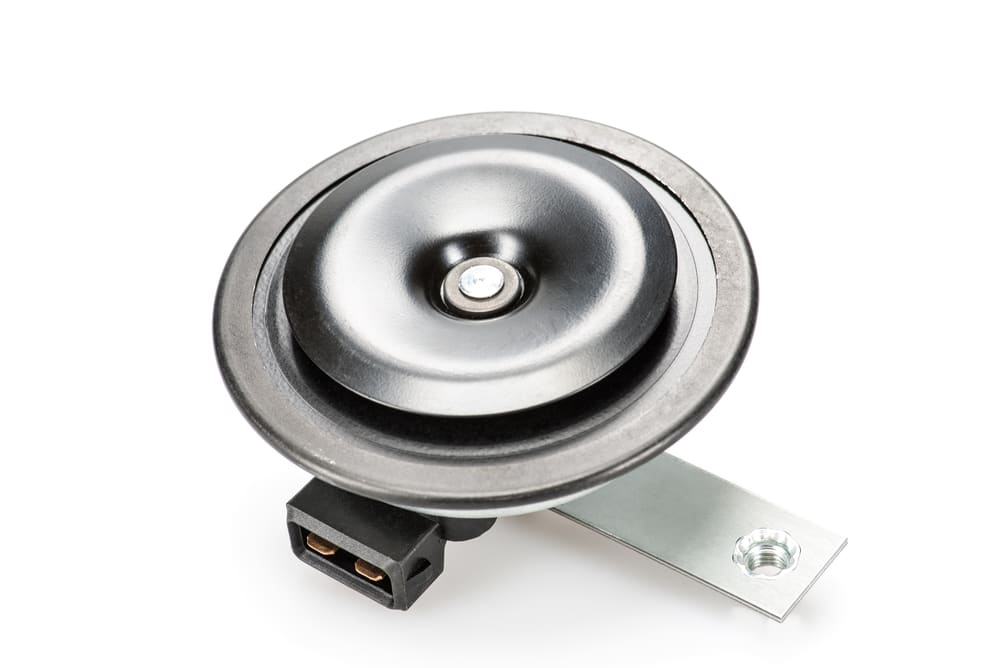

The horn is one of the most familiar and audibly recognizable components found on virtually all road going vehicles. It’s purpose is to serve as an easily recognizable audible cue for the driver to signal others of their presence or maneuvers. Most horns come in the form of switches built into the steering wheel that will “honk” a horn that is located under the hood.
When the horn button is pressed the horn produces a loud, distinct ringing sound that can easily alert other drivers of your presence. Federal regulations require that all road going vehicles have some sort of audible warning device, so a vehicle with a faulty horn is not up to safety standards and may be liable to receive a citation. Usually a faulty horn will produce a few symptoms that can alert the driver of a potential issue.
1. Change in the tone of the horn
One of the first symptoms of an issue with the horn is a horn that rings noticeably different tone than before. A fully functioning horn will produce a ring that maintains a steady pitch. If you notice that the horn suddenly changes in pitch, or begins to oscillate that may be a sign of a potential issue with the horn located under the hood.
2. Horn is substantially quieter
Another symptom of an issue with the horn is a horn that rings noticeably quieter when activated. If you notice that the horn rings suddenly quieter that may be a sign that the horn is beginning to fail, or that one of the horns has failed, if the vehicle is equipped with multiple units.
3. Horn does not function
And of course the most easily noticeably symptom of an issue with the vehicle’s horn is a nonfunctional horn. If the horn, or horn button fail, or there is an issue with the horn’s electrical circuit it may leave the vehicle without a functioning horn. A vehicle without a functional horn will be compromised in terms of safety, as it will leave the vehicle without an audible signal to warn other drivers of your presence or maneuvers. Federal law also requires all vehicles to have a functioning horn, so it is necessary under law for the horn to operate.
While failed horns are not generally a common issue, they can fail over time and leave the vehicle without a functioning audible warning device. If you suspect that your vehicle’s horn may be having an issue, have the vehicle inspected by a professional technician, such as one from YourMechanic, to determine if the horn should be replaced, or perhaps another issue addressed.



